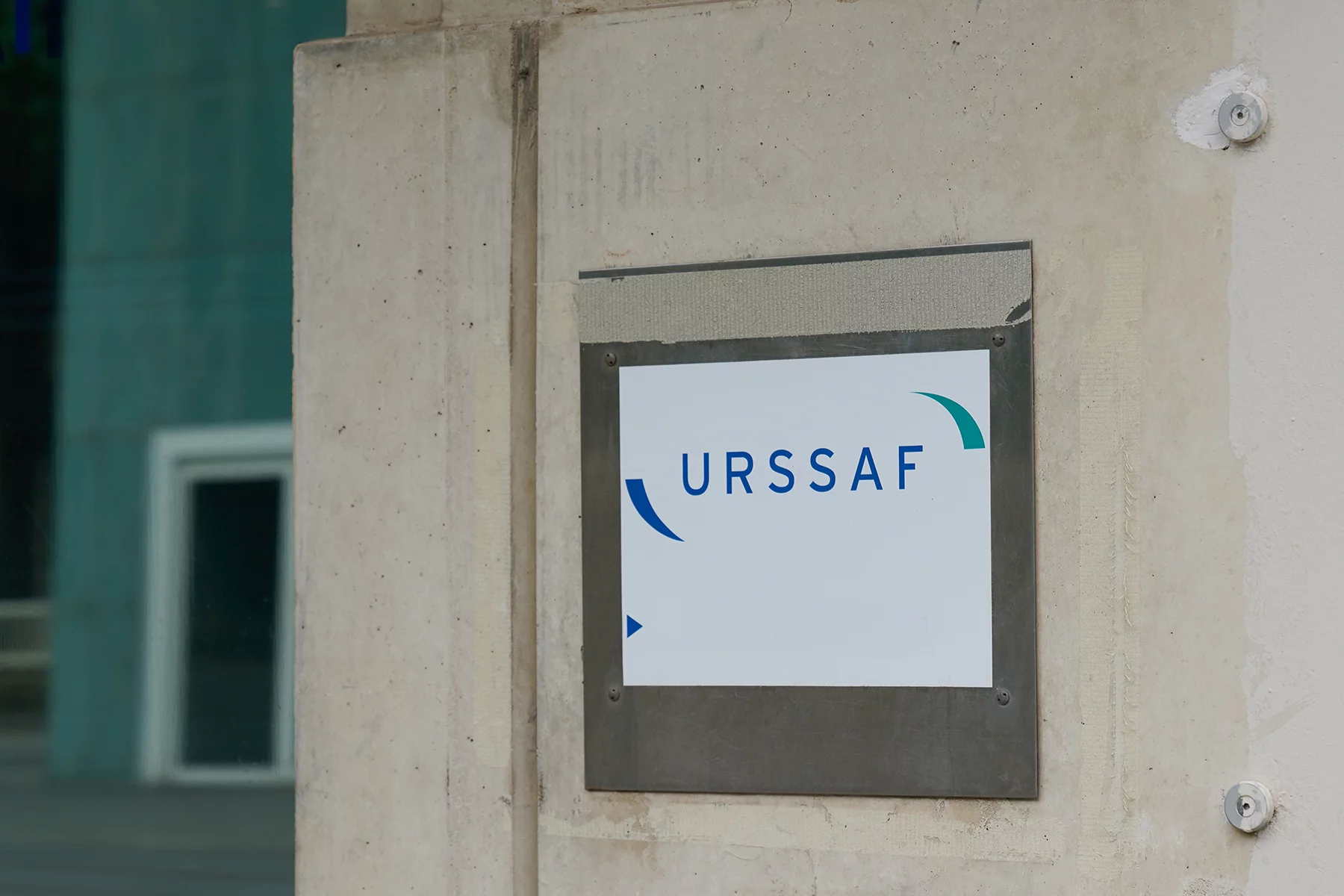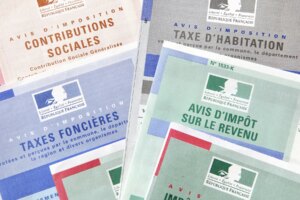One of the key elements of running your own business in France is understanding how the tax system applies to you and getting your head around the allowances you can claim. French taxes can be complicated, with self-employed workers able to choose between tax regimes.
If you freelance or work as an independent contractor, discover how much tax you’ll need to pay by reading about taxes for freelancers and self-employed workers in France. For international freelancers, managing finances across borders might be an additional challenge. Multi currency accounts like Wise Business can simplify receiving payments from global clients and managing money in multiple currencies. More on that later.
Read on to explore the following topics:
- The self-employed tax system in France
- Self-employed income tax in France
- Registering for freelance tax in France
- Self-employed and freelance tax deductions and credits in France
- Corporate tax in France
- How to file freelance tax in France
- VAT in France for self-employed people
- Social security for self-employed workers in France
- Tax fines if you freelance in France
- Associations for entrepreneurs in France
- How to find an accountant or financial adviser in France
- Useful resources
Elitax
Thinking of moving to France, but not sure how to manage your tax when you get there? Struggling to understand your tax after your circumstances have changed? Elitax can help you understand and manage your taxes in France before and after you arrive in the country.
The self-employed tax system in France
According to EU data, around 12% of French workers are self-employed, from freelancers and sole traders to people running partnerships and limited companies (2023).

Freelance workers in France typically have to pay tax on their earnings and make social security contributions. There is a range of structures available to self-employed workers and business owners in France. The type of business you operate will dictate the taxes you’ll need to pay on your income.
Self-employed income tax in France
Tax for self-employed sole traders and freelancers in France
If you set up as a sole trader (entreprise individuelle or EI) in France, you and your business will be considered one entity for tax purposes. This means you’ll pay tax under the general income tax system (Impôts sur le Revenu), at the same rates as salaried workers. The French income tax bands for 2025 and 2026 are currently the same, although there could be some updates after the government reviews the budget in late January 2026:
Income tax rates for 2025
| Income tax bracket | Tax rate |
| Up to €11,497 | 0% |
| €11,498–29,315 | 11% |
| €29,316–83,823 | 30% |
| €83,824–180,294 | 41% |
| €180,295 and above | 45% |
Income tax rates for 2026
| Income tax bracket | Tax rate |
| Up to €11,497 | 0% |
| €11,498–29,315 | 11% |
| €29,316–83,823 | 30% |
| €83,824–180,294 | 41% |
| €180,295 and above | 45% |
Self-employed workers can choose between paying tax under the standard system or the micro-entreprise regime (régime micro-entreprise). Under the standard system, you’ll declare your profits minus any allowable deductions and pay tax on that amount.
Under the micro-entreprise regime, you’ll instead declare your turnover minus a specific tax credit to determine your taxable base. Which regime works better for you will depend on your income and the type of company you run.
Micro-entreprise tax regime
The eligibility rules and flat-rate tax allowances for the micro-entreprise regime vary depending on the nature of your company.
Some types of self-employed workers aren’t eligible for the regime, so you should seek advice from the tax office before proceeding.
- Commercial (micro-BIC): If your business is classed as commercial sales, your turnover must be less than €188,700 to qualify for the tax regime. A deduction of 71% is available, meaning your taxable base will be 29% of your overall turnover.
- Trade/service-based (micro-BIC): The maximum turnover allowed is €77,000. The cost allowance is 50%, so your taxable base will be 50%.
- Professional (micro-BNC): For professional/liberal activities (such as accountants), the maximum turnover allowed is €77,000. Your tax credit is 34%, so you’ll pay tax on 66% of your income.
For example, let’s say you’re running a commercial business under the micro-entreprise regime. If you make €50,000 in a year, you’ll be able to offset the allowance of 71% against this. You’ll then pay income tax on the remaining 29% of your total revenue (€14,500).
Some micro-entrepreneurs may also need to pay business property tax (CFE), which is based on the rental value of the business property (or a flat rate if not operating from a fixed premises). You can find out more in the French government’s guide.
Tax for partnerships in France
If your company is registered as a SARL (a limited company in joint ownership), you can be taxed under the personal income tax system (as above) for the first five years. If you don’t qualify for this status, you’ll need to instead pay corporate tax on your profits.
Tax on limited companies in France
The type of tax you’ll need to pay when running a limited company depends on how the company is set up. Generally, limited companies are liable for French corporate tax, unless you have EIRL (Entrepreneur of Individual Limited Liability) status, in which case you may be able to pay income tax through your own tax return.
Registering for freelance tax in France
You’ll first need to register your self-employed activities with the Centre de Formalités des Entreprises (CFE). The CFE has different departments depending on the type of business (e.g., commercial businesses, liberal businesses).

Once you’ve completed this process, you can register as self-employed online and complete the micro-entreprise registration if you wish to follow that tax regime. If you decide to switch tax regimes at a later date, you’ll need to state this when filing your tax return the preceding year.
When establishing yourself as a freelancer in France, setting up the right banking infrastructure is just as important as registering with tax authorities. For those working with international clients, a Wise Business account can be particularly valuable, offering local account details in multiple currencies including major currencies like EUR, USD and GBP, that allow you to receive payments easily while avoiding excessive currency conversion fees.
Self-employed and freelance tax deductions and credits in France
If you register for tax under the micro-entreprise regime, you cannot claim any deductions against your tax bill, as you already benefit from the credits above.
If you register under the standard regime, there is a range of expenses you can deduct from your profits to work out your taxable income. These include overheads such as the cost of office space and equipment required to operate your company.
Most reasonable business outgoings are possible. The French tax agency sets the following rules on deductions:
- Deductions must be incurred in the direct interest of your company’s operation and relate to normal business management.
- Deductions must be recognized as an expense during the correct financial year and invoices must be provided as supporting evidence.
- Outgoings for working from home can be deducted as long as they are fairly distributed (e.g., how much you deduct from the cost of your electricity bill must be in line with how much of your time at home is spent working).
Corporate tax in France
Corporate tax rates in France have been falling in recent years. In 2021, most companies paid a standard rate of 26.5%, while companies with profits of more than €500,000 paid a higher rate of 27.5%.
Since 2022, however, all companies have paid a flat rate of 25% regardless of the size of the profits. Some smaller companies that meet certain criteria pay a reduced rate of 15% on the first €42,500 of profits.
Companies may be able to offset some tax credits against their profits. These can include credits for investment in research and development, new business credits that provide relief as a company is growing, and CICE credits, which can lower the cost of hiring employees abroad.
How to file freelance tax in France
If you are operating as an individual, you’ll only need to make one online tax declaration for your tax liability and social security contributions. In 2026, the deadlines are around 20 May for postal returns, or somewhere between 25 May and 5 June for online returns (the specific deadline varies depending on your département in France).

Self-employed workers either need to fill out form 2031 or 2035 (if using the standard tax regime) or form 2042C-PRO (if using the micro-entreprise regime).
Companies liable for corporate income tax must file an online tax return within three months of the end of their financial year, or by the second working day after 1 May if their year ends on 31 December. Corporate tax is normally paid in four quarterly instalments, but new companies and those whose corporate tax liability was €3,000 or less in the previous year are exempt from instalments and instead pay the tax in a single balance payment.
For international freelancers earning income in multiple currencies, paying taxes in France may require currency conversion. Banks might charge high incoming international transfer fees and use unfavorable exchange rates for these transactions, potentially adding significant costs to your tax bill.
Business multi-currency accounts like Wise offer mid-market exchange rates with a small transparent conversion fee, can help you save on financial costs when converting foreign earnings to euros.
VAT in France for self-employed people
VAT in France is called Taxe sur la valeur ajoutée, or TVA. TVA is payable on the sale of certain goods and services. TVA is chargeable at a rate of 20%, though reduced rates of 10%, 5.5%, and 2.1% are available for some products.
Smaller businesses in France don’t need to sign up for TVA. The threshold to register and pay the tax is €37,500 for service-based companies, and €85,000 for commercial businesses.
The government had planned to change self-employed VAT thresholds in 2025, but chose to delay the proposed reforms.
Wise Business Account
As an international freelancer in France, managing money across borders can be costly and complex. Wise offers a multi-currency business account that lets you receive payments in multiple currencies, convert at the mid-market exchange rate, and pay your French taxes and social security contributions without excessive fees.
Social security for self-employed workers in France
Self-employed workers in France must make social security contributions on a monthly or quarterly basis. How much you’ll need to pay will vary depending on the structure of your company.

If you choose standard accounting as a sole trader, your contributions will be calculated based on your final income tax calculation. Once a year, you’ll need to log on to the French government’s website and submit an online return titled Déclaration sociale des indépendants (DSI). Most social security contributions are tax-deductible.
Workers with micro-entreprise status pay social security contributions calculated as a percentage of their turnover, with rates ranging from around 12% to 22% depending on the nature of the activity.
Eligible businesses may benefit from ACRE, which provides a 50% reduction in social security contributions for the first year of activity. As the rules and eligibility conditions can be complex, it is recommended that you seek professional advice on how they apply to your company.
Tax fines if you freelance in France
If you fail to file your income tax return on time, you’ll face a penalty of up to 10–40% of the tax due. This can rise to 80% in serious cases of fraud or misconduct.
If you submit your corporate tax return late, you’ll be charged interest at 0.2% per month plus a penalty of at least 10% of the tax due. For late payments, the penalty starts at 5% of the tax due. Much larger fines of up to 80% can be imposed if you’re found to have committed tax fraud.
Associations for entrepreneurs in France
There are a number of associations for entrepreneurs in France, which can be a great way of gaining help and advice on setting up and running your own business. These include the following organizations:
- Citizen Entrepreneurs: association promoting entrepreneurship in France
- Fondation Chanel: group for female entrepreneurs in France
How to find an accountant or financial adviser in France
If you’re not sure how the tax rules apply to you, it’s worth getting professional advice from an expert. Companies such as Elitax and French Tax Online offer specialized services for newcomers to the country.
There are lots of English-speaking advisers dotted around France. As a starting point, check out our directory of French accountants and tax experts.

Pairing professional tax advice with the right financial tools can create a powerful combination for freelancers operating internationally.
While an accountant helps optimize your tax situation and ensures compliance, providers like Wise can complement this by streamlining your international money management, making it easier to track income, manage business expenses, and maintain clear records for tax purposes, all while minimizing currency conversion costs.
Useful resources
- Service-Public – the French civil service website
- French Ministry of Economy and Finance
- French online tax return






